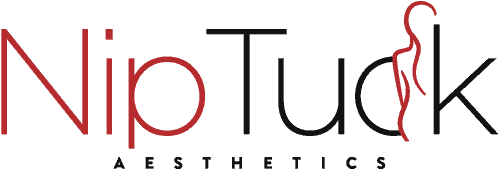Proper nutrition before BBL (Brazilian Butt Lift) surgery is pivotal for ideal results and recovery. We recommend focusing on protein-rich foods like lean meats, eggs, and Greek yogurt to support tissue repair. It’s imperative to incorporate vitamin C-rich foods and stay well-hydrated, aiming for at least 2.5 liters of water daily. An anti-inflammatory diet, including leafy greens and berries, can help reduce swelling and promote healing. We advise avoiding omega-3 rich foods, refined sugars, and excessive salt in the weeks leading up to surgery. Planning nutrient-dense meals and preparing them in advance can guarantee you’re getting the right nutrition. What other dietary considerations should you keep in mind for a successful BBL?
Importance of Pre-Surgery Nutrition
Three key reasons highlight the pivotal importance of pre-surgery nutrition for BBL patients: it reduces inflammation, speeds up healing, and optimizes surgical outcomes. We can’t stress enough how essential proper nutrition is in preparing your body for this transformative procedure.
Eating healthy, whole foods in the weeks leading up to your BBL surgery can make a world of difference. By focusing on nutrient-dense protein sources, such as lean meats, fish, and plant-based options, we’re providing our bodies with the building blocks needed for tissue repair and formation.
Additionally, incorporating foods rich in vitamin C, like citrus fruits and leafy greens, can boost our immune system and promote faster wound healing.
Why is this so significant? Well, by reducing inflammation through proper nutrition, we’re setting ourselves up for a smoother recovery process. This means less swelling, less discomfort, and potentially fewer complications.
Furthermore, a well-nourished body is better equipped to handle the stress of surgery and bounce back more quickly.
Protein-Rich Foods for Recovery
The protein-rich foods that’ll supercharge your recovery after BBL surgery are crucial for ideal healing. We want to guarantee you’re getting the right nutrients to support your body’s repair process.
After your BBL procedure, your body needs extra protein to aid in tissue repair and wound healing. We recommend focusing on lean protein sources like eggs, chicken, fish, and Greek yogurt. These foods provide complete proteins, containing all the essential amino acids your body requires for recovery.
To meet your increased protein needs, consider incorporating high-quality protein powders into your diet. Whey or collagen supplements can be excellent additions to your meals or smoothies. Aim for protein-rich meals and snacks containing 20-30 grams of protein to support muscle maintenance and growth.
Essential Vitamins and Minerals
Necessary vitamins and minerals play a pivotal role in your pre-BBL surgery nutrition plan, setting the stage for ideal healing and recovery. As we prepare for this transformative plastic surgery, we’ll want to focus on specific nutrients that support our body’s natural processes.
Let’s start with vitamin C, a powerhouse for collagen production. These foods not only taste great but also help with wound healing after the procedure.
Iron is another indispensable element, especially for our female patients. It supports healthy blood formation and improves blood flow, which is indispensable for recovery.
Don’t forget about zinc! It’s a key player in our immune system and tissue repair.
Omega-3 fatty acids, found in salmon and chia seeds, help reduce inflammation.
Ultimately, protein is vital for muscle recovery and tissue regeneration. Let’s incorporate lean sources like chicken and Greek yogurt into our pre-surgery diet.
Hydration and Fluid Intake
Proper hydration stands as a cornerstone of pre-BBL surgery preparation, playing a critical role in our overall health and recovery potential. As we approach our BBL surgery date, we’ll want to increase our water intake to at least 2.5 liters per day, starting 2-4 weeks before the procedure. This proactive approach promotes ideal hydration, which can improve circulation and enable faster healing post-surgery.
While boosting our fluid intake, we must be mindful of what we’re drinking. Let’s avoid sugary beverages, alcohol, and caffeinated drinks, as they can lead to dehydration. Instead, we’ll focus on water and incorporate electrolyte-rich foods into our diet. Bananas, avocados, and leafy greens are excellent choices to maintain our fluid balance.
It’s also essential to watch our salt intake. By limiting sodium, we can reduce fluid retention and swelling before the procedure. Remember, proper hydration isn’t just about drinking water – it’s about maintaining the right balance of fluids and electrolytes in our body. By following these guidelines, we’re setting ourselves up for a smoother BBL experience and potentially faster recovery.
Anti-Inflammatory Diet Choices
Adopting an anti-inflammatory diet is crucial for optimizing our body’s response to BBL surgery and promoting faster healing. As we prep for surgery, it’s indispensable to focus on foods that can help reduce swelling and support our immune system.
We should prioritize leafy greens, berries, fatty fish, nuts, and olive oil in our meals. These foods are rich in nutrients that combat inflammation and support healing. On the flip side, we’ll want to steer clear of processed foods, refined carbs, and excess salt, as they can hinder our recovery.
Antioxidant-rich foods like blueberries, tomatoes, and bell peppers are our allies in fighting oxidative stress and repairing tissues. We can also incorporate turmeric, ginger, and green tea into our diet for their potent anti-inflammatory qualities. These natural ingredients can work wonders in preparing our bodies for surgery.
Foods to Avoid
While we’ve covered beneficial foods, it’s just as vital to know which items to eliminate from our pre-BBL diet. Let’s focus on foods that could potentially hinder our recovery or increase surgical risks.
First, we’ll want to avoid omega-3 rich foods like mackerel, salmon, and walnuts. While normally healthy, these can increase bleeding risk during surgery. It’s also important to stop smoking and limit high blood pressure-inducing foods.
Next, we should steer clear of refined sugars found in chocolates, candies, and soft drinks. These can impair healing and compromise our results. Similarly, refined carbohydrates like white flour, white rice, and pasta can promote inflammation, which we want to avert.
Surprisingly, some vegetables can interfere with the surgical process. We’ll need to avoid tomatoes, eggplants, and potatoes as they contain compounds that may complicate our procedure.
Lastly, let’s be mindful of our salt intake. Excessive salt can contribute to post-operative swelling and fluid retention, potentially affecting our recovery.
Meal Planning and Preparation
Let’s plunge into meal planning and preparation to make our pre-BBL diet as effective and hassle-free as possible. Our goal is to guarantee we’re well-nourished before the procedure, supporting our body’s healing process and increasing the chances of a successful surgery.
We’ll want to plan our meals 2-4 weeks in advance, focusing on high-protein, nutrient-dense options. To incorporate anti-inflammatory foods, we can add turmeric and ginger to our dishes or snack on walnuts. Don’t forget to include omega-3 rich salmon in our weekly meal rotation. We’ll need to stay hydrated, so let’s keep water bottles handy and prepare invigorating infusions with cucumber or lemon.
Why not prepare bulk portions of lean proteins like grilled chicken or baked fish? These can be paired with antioxidant-rich vegetables such as roasted sweet potatoes or sautéed leafy greens. For plant-based alternatives, consider preparing lentil soups or tofu stir-fries.
Meal prepping can be a lifesaver during this time. We can dedicate a few hours each week to cooking and portioning our meals, ascertaining we always have nutritious options readily available. This approach will help us stay on track with our pre-BBL nutrition plan.
Timing Your Pre-Surgery Meals
Timing our meals strategically in the lead-up to BBL surgery can greatly impact our body’s readiness for the procedure and subsequent recovery. Let’s investigate how we can optimize our meal timing to support our health and healing.
In the weeks before surgery, we’ll want to focus on maintaining stable blood sugar levels. This means eating smaller, more frequent meals throughout the day. We can incorporate fresh fruits as healthy snacks between main meals, providing important vitamins and folic acid to support our body’s healing processes.
It’s imperative to stay hydrated, so we should aim to drink at least 8 glasses of water daily, spacing them out between meals. This helps flush toxins from our system and prepares our body for surgery.
As we approach the day of our procedure, we’ll need to be mindful of fasting requirements. Typically, we’ll stop eating solid foods 8-12 hours before surgery, but we can continue to sip clear liquids until about 2 hours prior. This helps prevent dehydration while ensuring our stomach is empty for anesthesia.
Supplements and Medications
Beyond meal timing, we must carefully manage our supplements and medications before BBL surgery to guarantee ideal safety and outcomes. As we prepare for this Plastic Surgery procedure, it’s essential to understand how certain substances can affect our bodies under general anesthesia.
We should stop taking vitamin E and omega-3 supplements in the weeks leading up to our BBL. These can increase bleeding risk, which is something we definitely want to avoid. Furthermore, it’s wise to discontinue any over-the-counter blood thinners at least a week before the procedure.
Herbal remedies and dietary pills can also impact surgery and recovery, so we’ll want to avoid those as well. Talk to your surgeon. They’re our best resource for understanding which medications and supplements are okay and which ones we should stop.
Post-Surgery Dietary Transition
Our dietary habits will need to shift dramatically after BBL surgery to support ideal healing and recovery. We’ll want to focus on soft foods that are easily digestible, reducing strain on our abdominal muscles and promoting our body’s ability to heal. Think soups, smoothies, and well-cooked vegetables.
Staying hydrated is vital during this time. We should aim to drink plenty of water throughout the day to help reduce swelling and guarantee proper nutrient transport. This is especially important if we’ve undergone additional procedures like a tummy tuck or liposuction.
If we’re taking antibiotics, it’s wise to incorporate probiotic-rich foods into our diet. Yogurt, kefir, or fermented vegetables can help maintain a healthy gut balance. Nevertheless, we’ll want to consult with our surgeon before adding these to our post-surgery meal plan.
Conclusion
We’ve covered the critical aspects of pre-BBL surgery nutrition, from protein-rich foods to hydration and anti-inflammatory choices. By following these guidelines, we’re setting ourselves up for a more effortless recovery process.
Remember, proper nutrition isn’t just about the days before surgery; it’s a commitment to our overall health. As we move to post-surgery care, let’s carry these healthy habits forward.
Consulting with our surgeon and nutritionist will guarantee we’re on the right path for ideal results and healing.
Ready to take the next step in your BBL journey? Contact Nip Tuck Aesthetics in Miami, FL today to schedule your consultation. Our expert team will guide you through the entire process, ensuring you’re fully prepared for your transformation. Call us now at (305) 264-5962 to begin your path to a more confident you!



